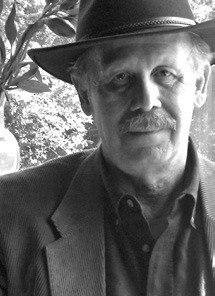THIS WEEK IN TEXAS HISTORY
THISWEEK IN TEXAS HISTORY
The month long court-martial at Fort Sam Houston ended on the evening of Sep. 30, 1954. The fate of the lowly corporal accused of collaborating with his communist captors was in the hands of eight high ranking officers.
Six years earlier at the tender age of 16, Claude Batchelor left his Kermit, Texas home and enlisted in the Army. Assigned to occupation duty in postwar Japan, he met and soon married a 19 year old cabaret dancer named Kyoko.
When North Korea launched a surprise invasion of the South in June 1950, Batchelor and his buddies were sent to the peninsula to plug the dike. Unfortunately, the young Texan was taken prisoner that autumn and spent the next 38 months in communist confinement.
After an armistice was signed in July 1953, the North Koreans and their Chinese allies handed over 3,600 U.S. POWs. But Cpl. Batchelor and 22 other Americans refused repatriation choosing instead to stay behind.
Responding to tearstained letters from his Japanese wife and repeated appeals from the United States Army, Batchelor changed his mind. Two months after his release in January 1954, he was arrested at Fort San Houston in San Antonio and charged with three counts of collaboration and another three of informing on fellow prisoners.
The unprecedented prosecution of Batchelor and other suspected turncoats was denounced by many Americans as a despicable double-cross. How could the Army beg the reluctant recruits to come home and then turn right around nail them to a court-martial cross?
The widely held opinion that Batchelor was the victim of a Pentagon vendetta intensified during his tribunal trial, which began on Aug. 30, 1954. The chief prosecutor received an average of 25 hostile letters a day during the controversial proceeding.
While in the dock at Fort Sam, Batchelor closely monitored a similar court-martial being simultaneously held at an Illinois installation. On Sep. 22 Henry Fleming, a 46 year old lieutenant colonel, became the first officer ever convicted of collaboration. His sentence, however, was shockingly light; dismissal from the service and forfeiture of pay.
This slap on the wrist punishment strengthened Batchelor’s faint hope of lenient treatment. The corporal failed to appreciate the essential fact that the lieutenant colonel had been judged by a jury of his peers.
The most incriminating testimony against Batchelor came from a dozen former POWs. One of those witnesses was Cpl. Edward Dickenson, who like the defendant, had remained in North Korea but later had a change of heart. Already sentenced to a token ten years for prison-camp misconduct, Dickenson appeared to have cut a deal in exchange for putting away an old friend.
Since Batchelor pleaded innocent by reason of temporary insanity, the cornerstone of his defense was the complex question of communist brainwashing. But the two Army psychiatrists that examined him shortly after his release insisted he “knew right from wrong” while a prisoner and was “in perfect contact with reality.”
On cross-examination the defense attorney read excerpts from the military mind readers’ written evaluation. They had concluded that loneliness and homesickness might have made the young GI particularly vulnerable to intimidation and manipulation.
The board deliberated two hours and 14 minutes before reaching a verdict. Cpl. Batchelor was found guilty on all three counts of collaboration, including his accusation of U.S. germ warfare in a letter to his hometown newspaper, and on two charges of snitching on other POWs.
When the verdict was announced, Clara Mae Batchelor burst into tears and hugged her son. “I can take it,” he whispered as the MP’s took him away. That was before he heard the sentence – life at hard labor.
Interviewed at her home in Tokyo, Batchelor’s Japanese wife regretted ever encouraging him to leave North Korea. She explained emotionally, “He was young and impressionable and had no opportunity to develop character in the soldiers’ life here. If the communist starved him for ten days, he probable agreed to say yes to anything they said.”
“No one was promised immunity,” says the Army. But it is improbable that anyone was told that he would have to answer to charges, or he would not have returned,” the Dallas Morning News emphasized in a thoughtful editorial. “What allowance do we make for the immaturity of 18 year old draftees, let alone of an unsophisticated Batchelor, who volunteered at sixteen?”
Mrs. Batchelor expressed more concern for the country than her incarcerated son. “I am not worried about Claude. I am sure he is going to be all right.
“I hope people are not going to get disgusted with our government over this. That is exactly what the communists want. But we should never criticize the principles of our government.”
Bartee Haile welcomes your comments, questions and suggestions at Bartee Haile, P.O. Box 130011, Spring, TX 77393.











